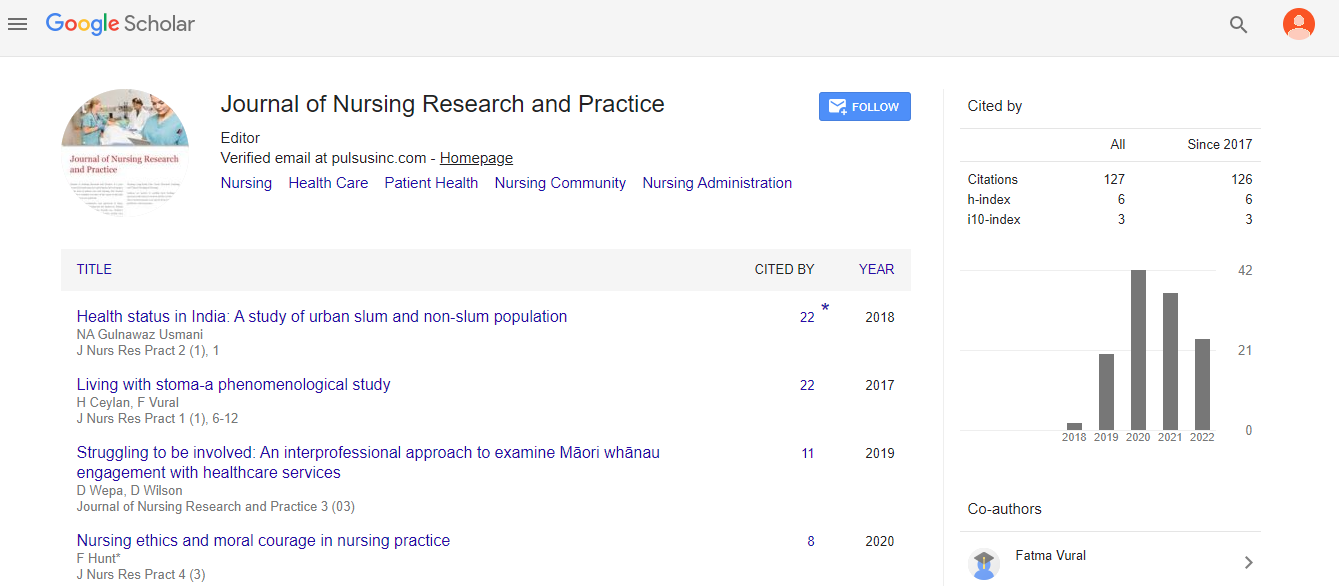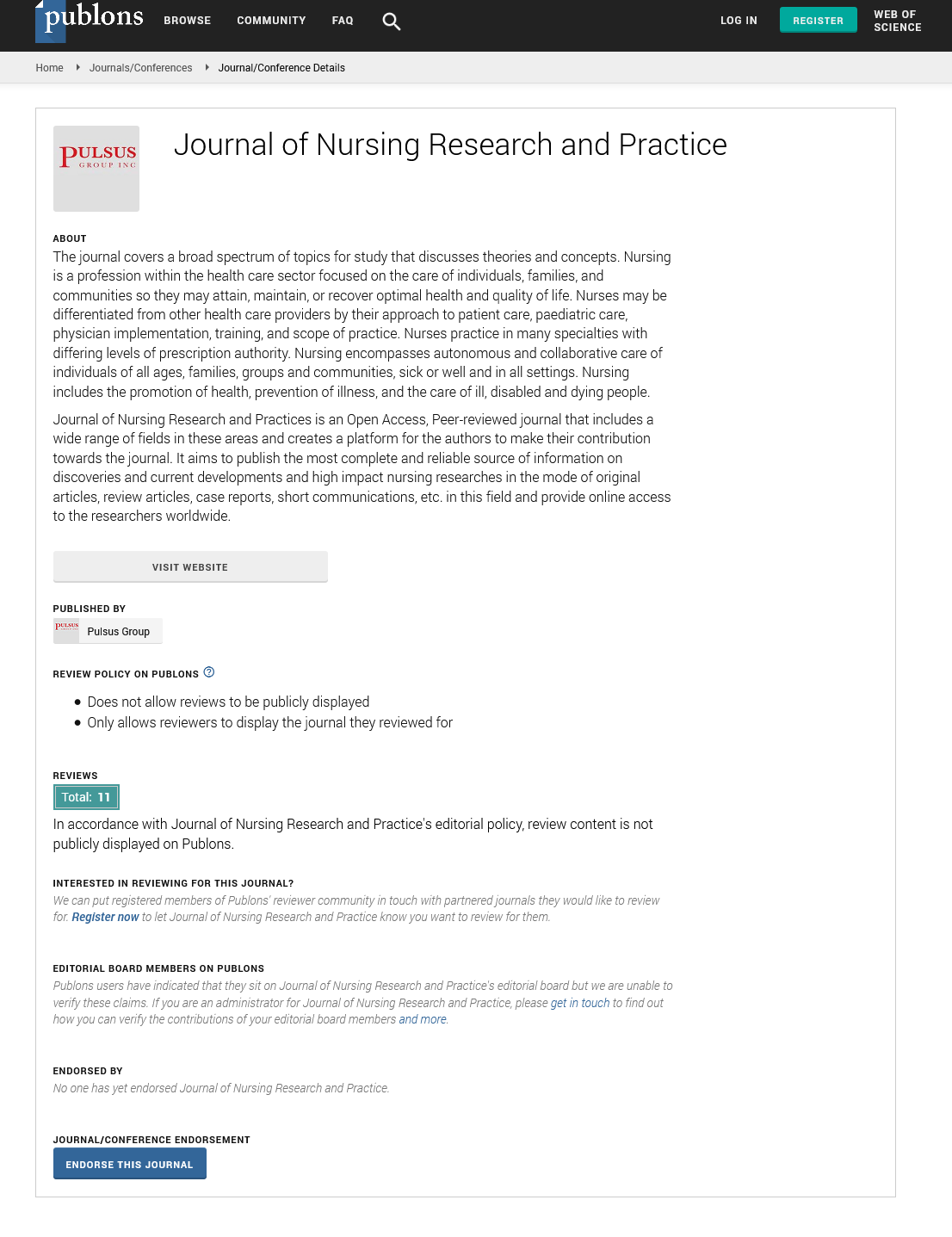Advanced nursing practice in France
Received: 26-Nov-2017 Accepted Date: Nov 28, 2017; Published: 05-Dec-2017
Citation: Letourneau D. Advanced nursing practice in France. J Nurs Res Pract. 2017;1(1): 17.
This open-access article is distributed under the terms of the Creative Commons Attribution Non-Commercial License (CC BY-NC) (http://creativecommons.org/licenses/by-nc/4.0/), which permits reuse, distribution and reproduction of the article, provided that the original work is properly cited and the reuse is restricted to noncommercial purposes. For commercial reuse, contact reprints@pulsus.com
Under French law, health professions consist of several categories including medical professions including doctors (only likely to effect transfers of skills) and the medical auxiliary professions named the most often paramedic.
Advanced practices are based on the principle of a transfer of jurisdiction which goes beyond a simple delegation of actions or tasks. Healthy, French law does not mention the transfer of powers as such, but the cooperation between health professionals. The semantic choice can be explained by the legal consequences arising therefrom. The transfer of powers would empower the physician assistant for acts that today are the responsibility of the medical monopoly.
The French model has built especially in a historical relationship of subordination of the paramedic to the medicine listed in a biomedical care design. Other countries have preferred, in a culture of complementarity between Cure and Care, other ways to define the activities of doctors and paramedics. We will find is that very often the universitarisation of paramedical training is particularly developed, while this still remains embryonic in France.
If the issue of advanced practices was sketched as early as 2003, especially from the perspectives related to medical demography (Pr Berland reports) that she could be really considered. Which from our point of view is a bad approach, because it addresses only on the quantitative side and as a shortterm response to a badly treated problem for at least two decades.
While think about advanced, practices is to take into account the evolution of the health needs related to the development of chronic diseases and pathologies poly in a context of ageing of the population. It is also taken into account the technological progress that allows to organize differently the relationships between health professionals and of course those with patients. Everyone agrees on the unproductive silos (city/hospital-health/medicosocial) and juxtaposition of the actors. Advanced practices can be a lever for a new organization of care, to the benefit of the patient, based on exercise modes more shared and new functions of coordination.
Mediated by the public authorities, without really deciding, advanced practices remain a debate between specialists with sometimes divergent interests, without that the population is informed.
Our citizens interviewed by “the Foundation de l’Avenir” end of 2013, expressed a level of very low information and a mixed membership level. The paradox being that it’s certainly the first recipients (elderly, isolated rural people) who were most opposed. Four years later, still most likely that we are still at the same level.
Since January 2016, the legislative framework for advanced practice is clarified. But the implementation soon. Indeed, the level of specific training, the positioning between Clinical nurse and nurse practitioner and compensation are prerequisites. The new Minister of French health took over. Can we expect? We can reasonably say yes.






